Israel struck back at Hezbollah during the early hours of Sunday following deadly rocket attack
The IAF struck a series of Hezbollah terror targets overnight. On Saturday a Hezbollah fired rocket killed 12 young Israelis and injured many more. (Credit: IDF Spokesman's Unit.)
Six months after Yulia Bar-Dan and her family fled their home on a kibbutz in northern Israel fearing a possible Hezbollah assault following the horrendous Hamas attack of Oct. 7, she returned to gather what she could from a lifetime of memories she’d left behind.
One hour was all she had. "We were given a chance, under the cover of darkness, to return home for the first time," she told Fox News Digital. "I cried the whole time."
When she arrived, Kibbutz Manara, once home to close to 300 people, looked like a war zone. "We heard explosions above us and hurried to our house – the one closest to the Lebanese border. There was no electricity, and we couldn’t open the windows," she said.
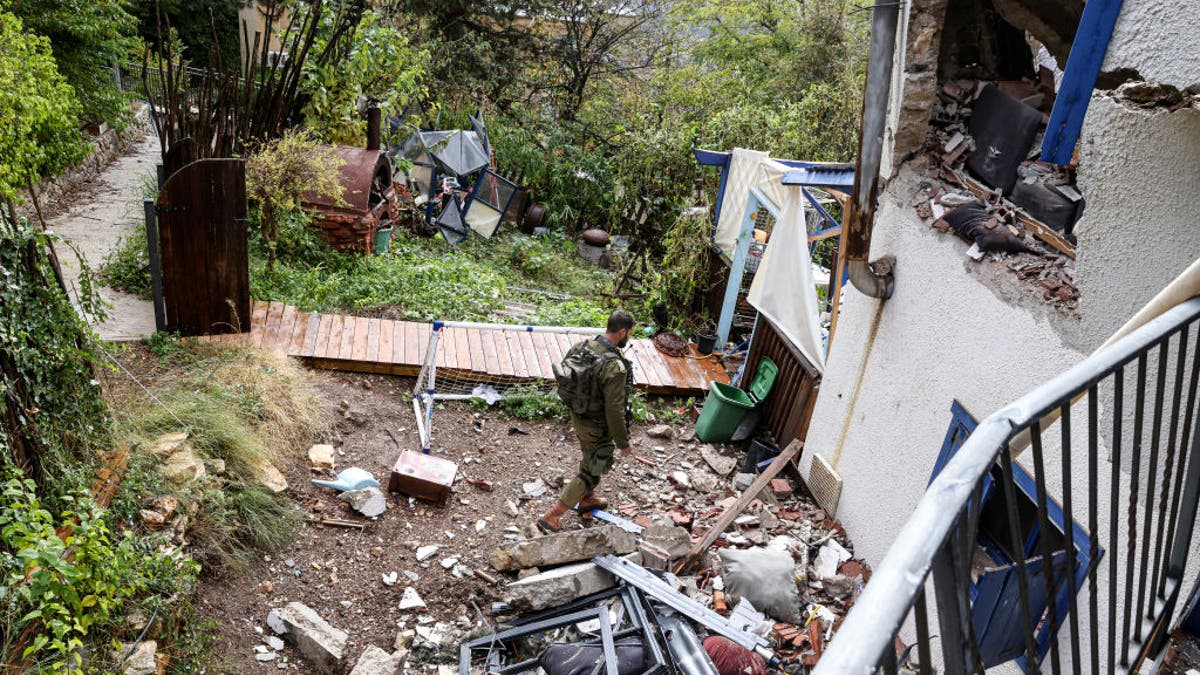
A soldier walks amid the rubble of a house damaged in a strike by Hezbollah terrorists in Kibbutz Manara, in northern Israel near the Lebanon border, on Nov. 27, 2023. (Jalaa Marey/AFP via Getty Images)
With a flashlight in hand, she went room to room, gathering as much as she could in a large trash bag. The family of five is now living in a single room and there’s not much space for extras. "My daughter wanted her dollhouse, but I couldn’t bring it. The happiest moment was finding our cat alive. Seeing him brought real joy to the kids," she says.
Not long after she collected her belongings and left the kibbutz, a Hezbollah missile hit her house. The strike added her home to the staggering 75% of kibbutz structures in the north that have been damaged by Hezbollah’s relentless bombardments.
Since Hezbollah joined the war as a "support front" for Hamas on Oct. 8, over 7,500 rockets have been fired from Lebanon into Israel, and more than 200 drones have crossed the border. The toll: 44 people have been killed, 271 wounded and 62,000 evacuated from dozens of communities in northern Israel. Those who have left have no idea when – or even if – they will ever return. The damage to agriculture and tourism has reached billions of dollars, and there is widespread fear that this conflict will escalate further.
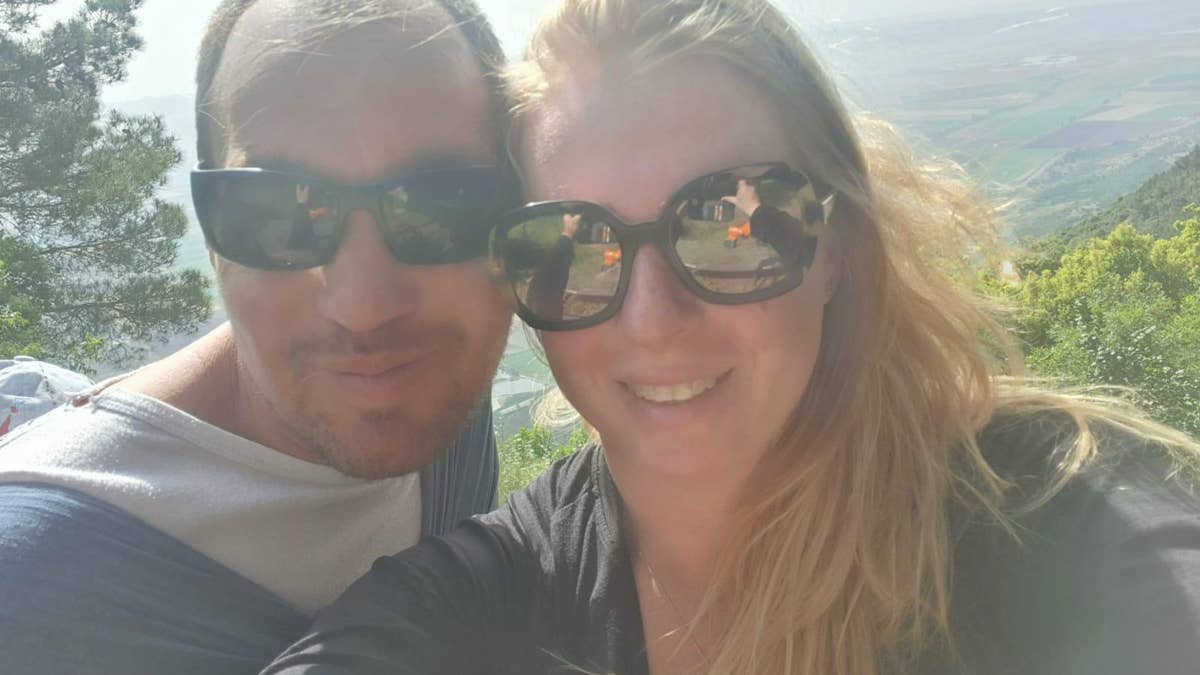
With Lebanon in the background, Yulia Bar-Dan and her husband Nadav during quieter times at Kibbutz Manara. (Yulia Bar-Dan)
The decision to evacuate most northern communities immediately after Oct. 7 didn’t come from the government, which was slow to respond. It came from the residents themselves. "It’s sheer luck that Hezbollah’s Radwan forces didn’t join Hamas in the massacre; if they had, nothing would have stopped them," says Yochai Wolfin, the community director of Kibbutz Manara. "We are right on the border and at high risk. We’ve known for at least 10 years that Hezbollah’s Radwan forces have a plan they’ve been training to invade the Galilee, seize multiple communities and do here exactly what we saw happen in the south."
ISRAEL WARNS US DEFENSE CHIEF IRAN AGGRESSION HAS ‘REACHED ALL-TIME HIGH’
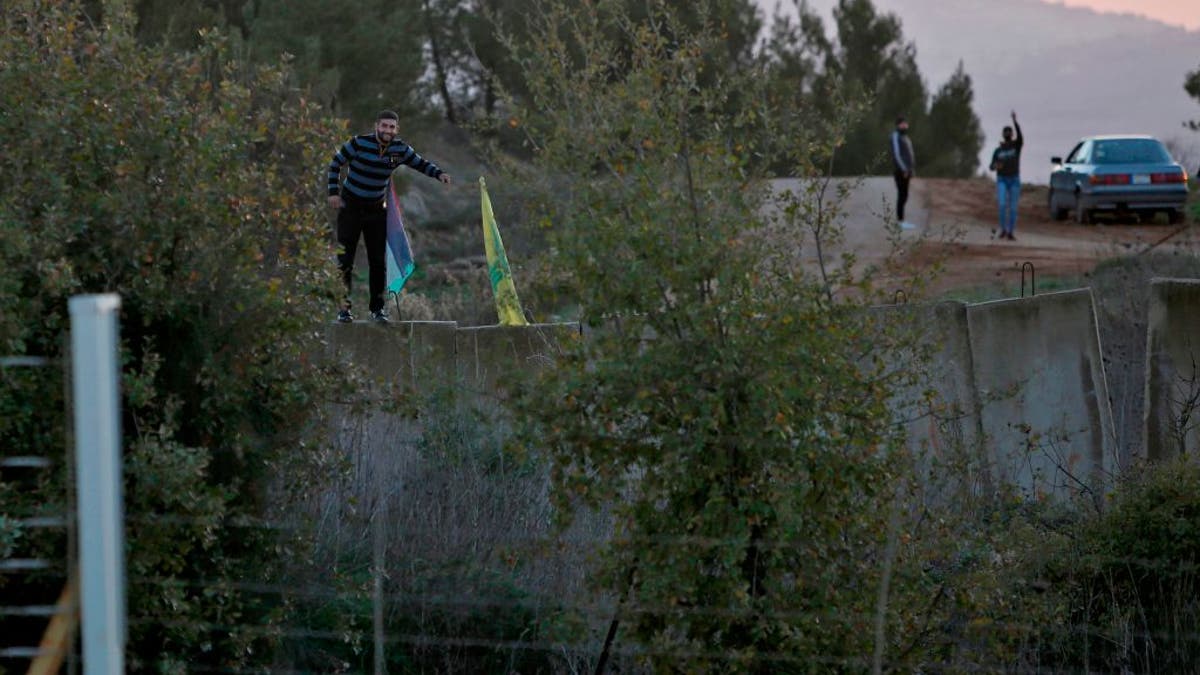
A picture taken from Kibbutz Manara on Dec. 20, 2020, shows a Lebanese man holding a Hezbollah flag in the southern Lebanese village of Hula. (Jalaa Marey/AFP via Getty Images)
Naor Shamia, who has lived with his wife and three children on Kibbutz Manara since 2011, doesn’t sugarcoat the response of people living near the northern border following Oct. 7. "We ran away. We were terrified they would slaughter us, just like they did in the Gaza envelope," he recalled.
Since Oct. 7, Shamia, who typically would spend his days teaching math and physics, has been focused on leading the kibbutz’s rapid response unit – a band of community members with combat experience – which has been tasked with defending against terrorist infiltrations, rocket fire and even wildfires ignited by hot shrapnel or missile impacts. "Much of Kibbutz Manara is visible from Lebanon, which makes our situation even more challenging," Shamia says. "You can walk through parts of the kibbutz and be fully exposed to Hezbollah."
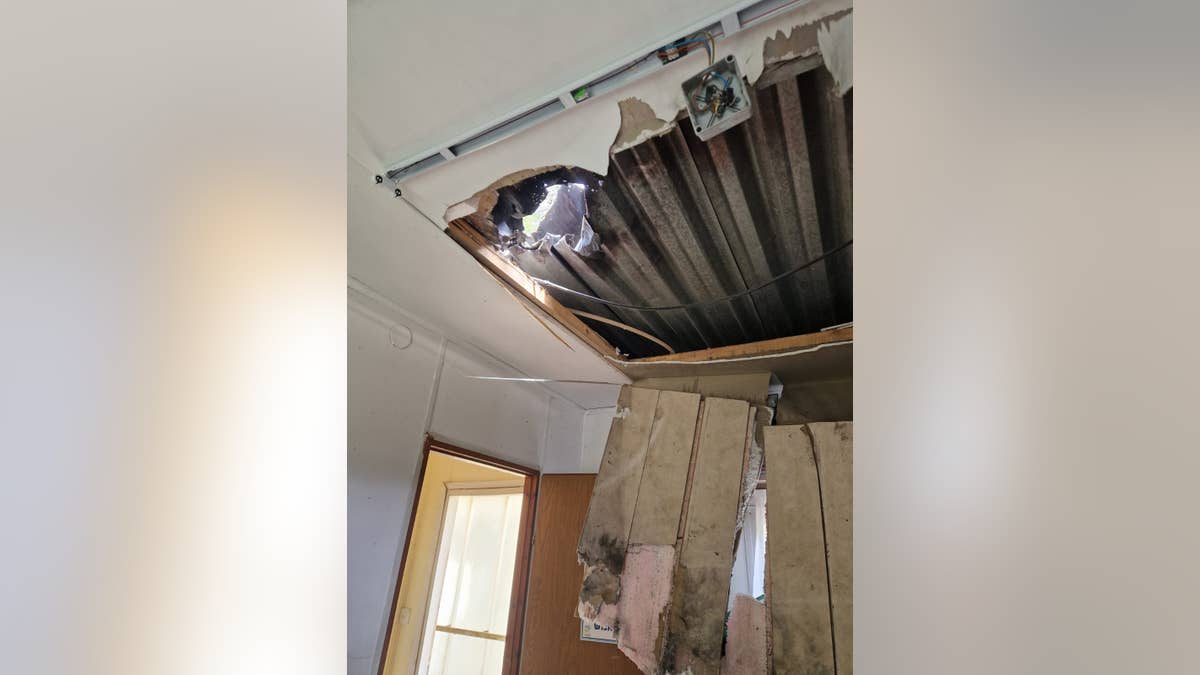
A house in the kibbutz damaged by Hezbollah rockets. (Kibbutz Manara Rapid Response unit)
In December, when members of the rapid response unit rushed to a blaze that had been sparked by an anti-tank missile, Hezbollah fired three more missiles, injuring two members of the unit. "Manara sits on a high ridge, making us an easy target for anti-tank missiles," Shamia says. "We’re exposed."
Established in 1943, the kibbutz economy has been primarily based on agriculture, including a famous vineyard, cherry and apple orchards, and poultry farming. Today, much of that has been destroyed by Hezbollah’s rockets. The vineyard was burned and the orchards, located in frequently targeted areas, were abandoned.
An aluminum business, which Yulia’s husband, Nadav, ran, was also destroyed by a missile strike. Since then, he has been serving with the rapid response unit, while Bar-Dan and their three children live in a single room on a kibbutz in the north but away from the border.
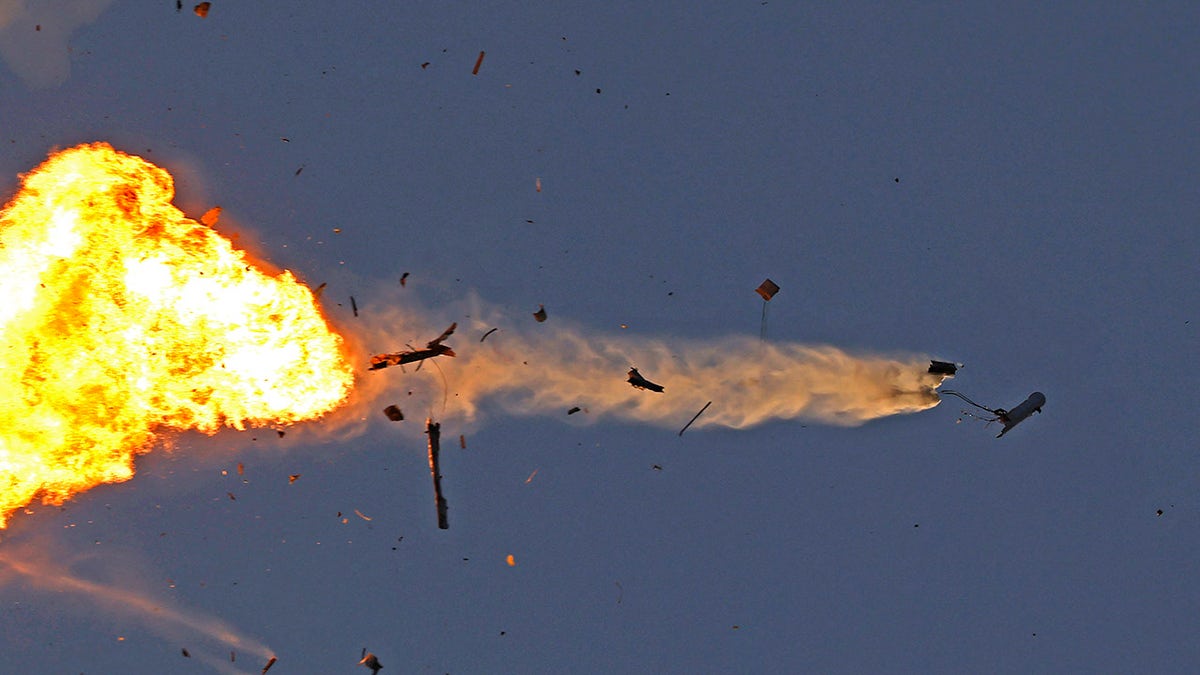
This photo taken from a position in northern Israel shows a Hezbollah UAV intercepted by Israeli air forces over northern Israel on Aug. 25, 2024. (Jalaa Marey/AFP via Getty Images)
"There’s no official declaration of war here, but we’re living as if there is a war, constantly bombarded by drones and missiles," she says. "The children go to school, but they spent two hours in a shelter today because of missile fire. People might ask, ‘Why don’t you move somewhere else?’ But this is our home. I can’t imagine living anywhere else."
She continued, "What would happen if she and others pulled up roots and abandoned the northernmost regions of Israel? Manara is on the border. If we’re not there, who will be? We have to come back."
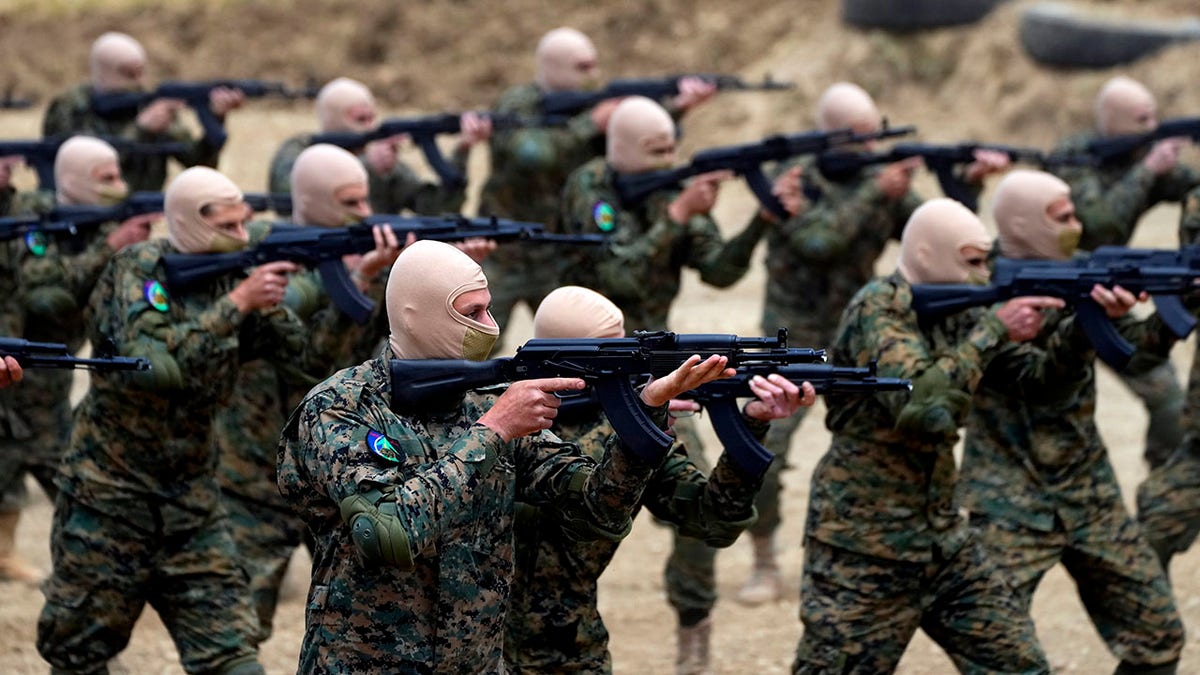
Terrorists from Hezbollah carry out a training exercise in southern Lebanon in May 2023. (AP/Hassan Ammar)
CLICK HERE TO GET THE FOX NEWS APP
She says she hopes for the day when the government comes to understand what’s at stake "and does what’s necessary to change the situation in the north. While the world’s attention is focused elsewhere," adding, "the war between Israel and Hezbollah has left northern Israel in a state of devastation."









































